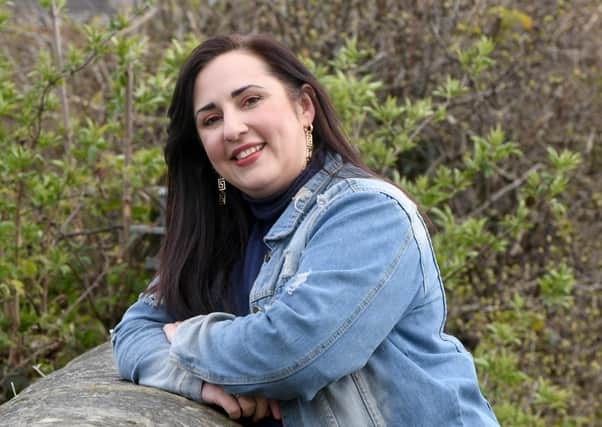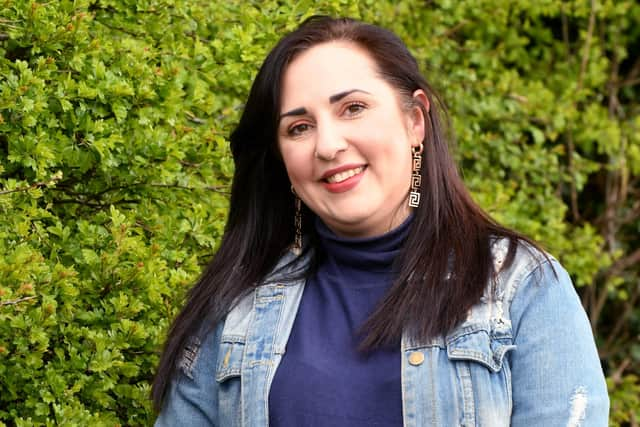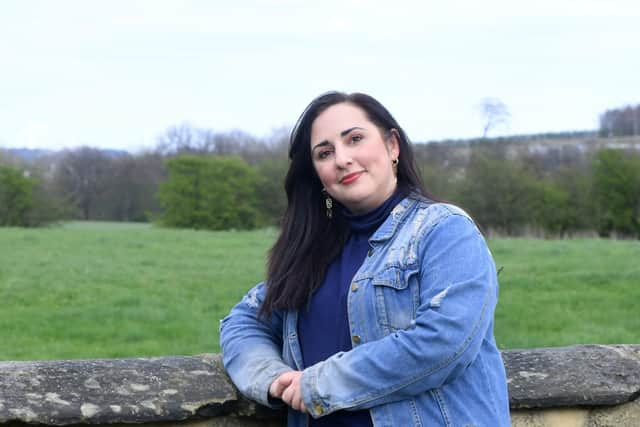Yorkshire mother who wants to empower Muslim women


Until then Salwa had been brought up in a patriarchal society, where it was ingrained from birth that she was inferior, based on her gender. She says violence against women was also the norm which was predominantly accepted and justified by both genders.
She realises now that what she was taught as a child in terms of gender limitations was “a version of Islam” – not the truth, and she is passionate about speaking out against these misconceptions.
Advertisement
Hide AdAdvertisement
Hide Ad“Islam is a beautiful, peaceful religion which advocates gender equality and celebrates the gifts both genders bring. Yet, unfortunately, it is common for Muslim societies to mix culture and societal forms which regress to pre-Islam teachings and use religion to justify it and it is used as a weapon and a threat to keep women oppressed.”


She is now leading a campaign to raise awareness of violence against Muslim women but also aims to start a conversation in wider society.
“Many Muslim women, not all, face challenges within their communities, where the culture is infused with patriarchy and deeply reluctant of female independence,” says Salwa, from Huddersfield. “Women within patriarchal communities and societies not only face possible violence from their husbands, but possible violence from the wider family which can be compounded and maintained by structural foundations throughout the communities and societies. Women within these communities, regardless of faith, share in common the ingrained beliefs through many generations, that their responsibility and duty is to sacrifice everything, including their own wellbeing, for the honour of the family.
“This combined with the low number of visible Muslim female role models results in many women not even attempting to dream and stand out of their oppressive gender role expectations and in many cases gender violence.”
Advertisement
Hide AdAdvertisement
Hide AdSalwa, 41, is a female social entrepreneur coach and passionate gender equality advocate. She is sharing her experiences to empower others, to raise awareness of violence against women and the cultural context many Muslim women face and give a platform for their voices.


She says her campaign will also work to encourage men and women from across wider society to pledge their skills, resources, voices and much more to stop violence against women.
“Already, so many influential men and women have stepped up and pledged their services, free places on their training and memberships to help women in need get back on their feet,” says Salwa.
Salwa regularly hosts events and interviews on her Facebook group – https://bit.ly/strongmuslimwomen – and hopes this is the start of bringing like-minded Muslim women and women from the wider community together to eradicate violence against women and raise awareness of the cultural context of violence against women within patriarchal communities.
Advertisement
Hide AdAdvertisement
Hide AdIt wasn’t until Salwa was in her late 30s that she says she finally fully started to overcome cultural and patriarchal oppression values – and finally felt proud of the strong independent woman she has become.
She says she has since broken down so many ingrained beliefs of feeling invisible, worthless, voiceless, feelings of shame and guilt and weakness to rise up for the first time in her life.
Her own transformation through working with a life coach has driven Salwa to share what she has learnt with other women who may have experienced similar struggles or been trodden down.
“The way to truly impact change is to bring a balance to the scales of leadership, whilst challenging the definition of leadership and celebrating the power of harnessing feminine leadership,” she says.
Advertisement
Hide AdAdvertisement
Hide AdSalwa works with emerging and aspiring female social leaders, empowering them and helping to impact social justice and change.
She combines her personal experiences and her corporate skills and lessons, to lead, coach and mentor future female role models.
Research has shown women from BAME (Black, Asian and Minority Ethnic) communities are more likely to suffer with mental health issues, including depression and anxiety with a higher occurrence of anxiety and depression in south Asian women at 63.5 per cent compared to 28.5 per cent of white women.
United Nations figures reveal one in three women face violence globally. This figure is higher in societies where women are neglected and thought to be inferior where up to 70 per cent of women have faced violence.
Advertisement
Hide AdAdvertisement
Hide Ad“Studies showed 93 per cent of BAME groups with mental health face discrimination from their own communities.
“Other reasons include lack of awareness of the cultural context and challenges the women face within the support organisations, the stigma attached to mental illness and cultural ingrained values.”
Salwa’s campaign sets out to highlight the need to raise awareness of the physical, emotional, mental and community-based violence these women face.
“It is time to speak up and spread the word and challenge these oppressive societal norms which greatly attribute to violence against women,” she says.
www.salwaabdulhadi.com
Comment Guidelines
National World encourages reader discussion on our stories. User feedback, insights and back-and-forth exchanges add a rich layer of context to reporting. Please review our Community Guidelines before commenting.